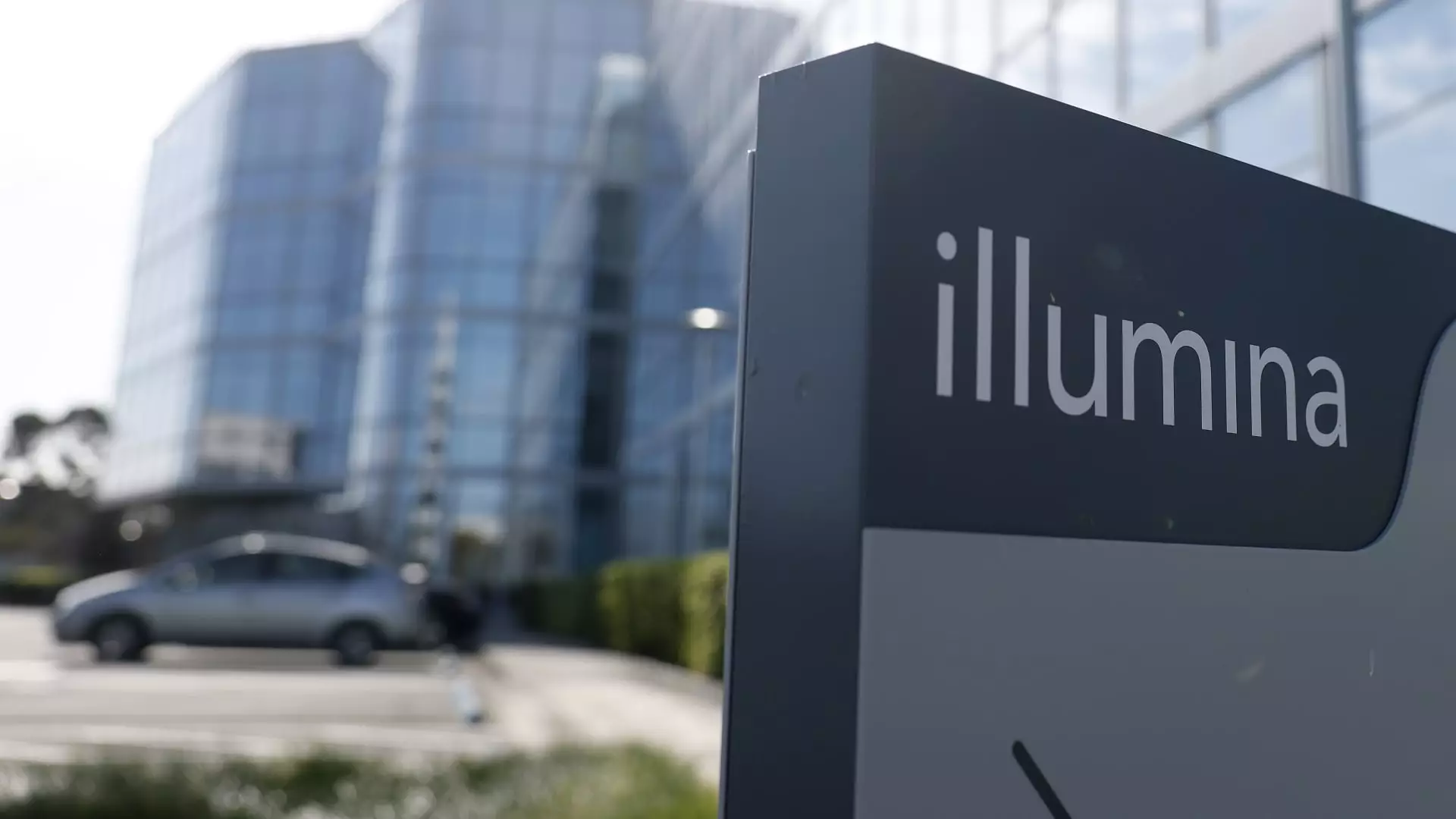Illumina, once the titan of gene-sequencing technology, has recently become a cautionary tale in the world of high-stakes biotechnology. From a lofty market cap of $70 billion to a meager $12.67 billion, the company’s spiral raises critical questions about corporate governance, strategic vision, and the perils of overreaching ambition. Founded with a noble mission—to make genomic solutions accessible in both research and clinical settings—Illumina’s trajectory serves as a prime example of how quickly fortunes can turn in this space. The once-coveted stock price of $511 per share in August 2021 has fallen to $80, demonstrating the swift ramifications of miscalculated decisions in an industry that should ideally be grounded in cutting-edge science—not corporate blunders.
The Grail Debacle: A Cautionary Tale
Perhaps the most significant shackle on Illumina’s growth has been its tumultuous relationship with Grail, a venture launched to advance multi-cancer early detection tests. What began as an ambitious exploration into innovative healthcare solutions morphed into a financial quagmire. Illumina’s initial decision to spin off Grail in 2016 and later reacquire it for $8 billion in 2021 illuminated questionable decision-making at the executive level. The move not only failed to secure the approval of regulatory bodies like the Federal Trade Commission but also drew the ire of the European Commission, resulting in punitive fines. The decision to ultimately re-spin Grail in June 2024 demonstrates a crisis of leadership; rather than pursuing growth opportunities, Illumina found itself caught in a web of intricate governance challenges.
The company’s inability to effectively navigate this situation reflects broader corporate failings. One might argue that the leadership team was too wrapped up in short-term gains rather than a sustainable long-term strategy. In the murky waters of biotechnology, research often seeks to create life-saving solutions, but when those strategies are co-opted by financial whims, the slippery slope to disaster begins.
A Strained Market and Uncertain Future
Illumina’s challenges haven’t ended there. The landscape of biotechnology is invoked with uncertainty, especially as the consequences of its ill-fated forays into Russia and China loom large. The geopolitical atmosphere has not only hindered business growth but also tarnished the brand’s reputation. As funding for biotech ventures ebbs and flows—with looming questions surrounding National Institutes of Health (NIH) support—the specter of instability hovers over the sector like an ominous cloud. The interplay of innovation, regulation, and external pressures makes for a harrowing cocktail, particularly when navigating the high stakes of genomic technology.
In a sector defined by rapid evolution and discovery, Illumina’s faltering steps toward reinvention highlight the fragility of once-unassailable market positions. The company stands as a testament to the industry’s volatility, beckoning potential investors to ask—what has changed since the boom of the COVID-19 pandemic? While initial demand for sequencing boomed, the subsequent slump and contraction have laid bare the cracks in Illumina’s foundation.
Leadership Changes: A Harbinger of Hope or More Turmoil?
One might argue that leadership transitions could be Illumina’s saving grace. The appointment of Keith Meister from Corvex Management to the board could serve as either a rescue mission or another misguided maneuver. While Meister’s history in activist investments raises eyebrows, it also introduces an opportunity for transformative oversight. His past efforts to bolster shareholder value at companies like Biogen and Yum Brands suggest he could be a valuable asset, but it raises the question: will he steer Illumina back to robust growth or contribute to further internal disarray?
The renewal of leadership often breeds optimism, yet in Illumina’s case, skepticism looms. Is this a genuine restructuring aimed at revitalizing the brand, or merely an exercise in appeasement for investors who have watched their stock plummet? The veritable challenge remains in aligning the new leadership team’s vision with a coherent and actionable plan to stabilize and re-energize the brand.
A Market Leader in Decline
Despite these significant hurdles, Illumina remains a leader in gene-sequencing technology, controlling a staggering 80% of the global market. Their innovative razor-and-blade business model—where they leverage high-margin consumables alongside relatively low-margin hardware—has proven effective in the past. However, the financial landscape is shifting beneath their very feet, urging stakeholders to reassess their roles and responsibilities as they navigate new waters with the impending launch of the NovaSeq X sequencing technology.
As Illumina stands on the precipice of technological evolution, the challenge will be to maintain market dominance in light of these transitions. The potential short-term revenue pressures could bring Illumina’s precarious position into sharper focus; in an industry that thrives on rapid change, can a company recovering from its mistakes keep pace, or will it find itself adrift as competitors seize the opportunity? The odds are high, but so are the stakes, making this corporate saga not just a lesson in biotechnology, but also a broader commentary on the fragility of market leadership itself.

